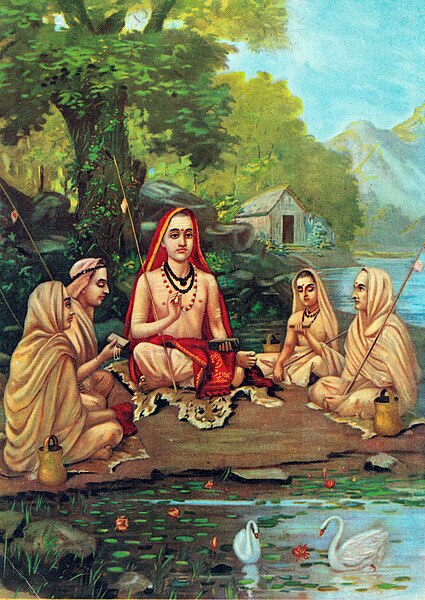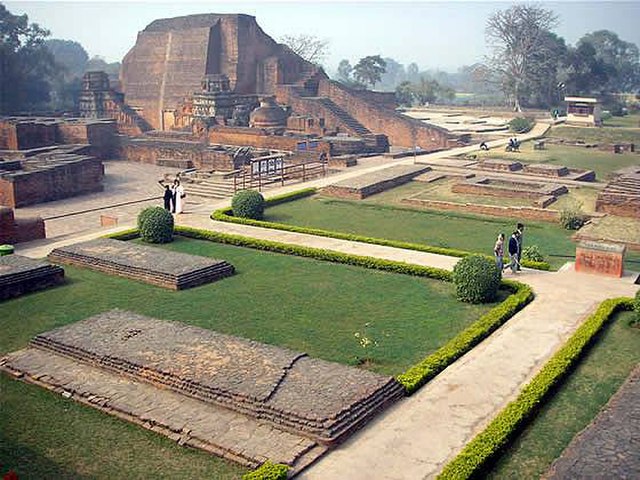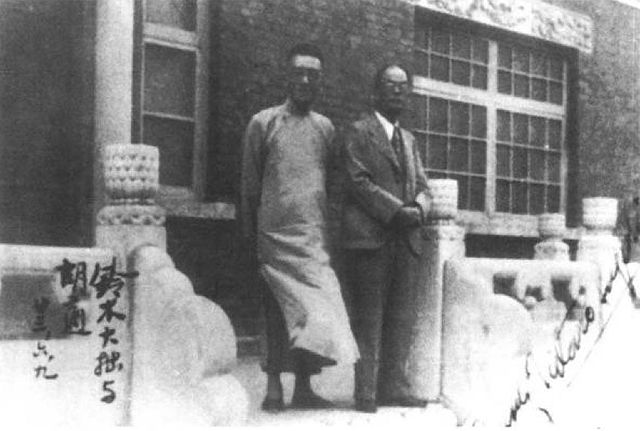Eastern philosophy or Asian philosophy includes the various philosophies that originated in East and South Asia, including Chinese philosophy, Japanese philosophy, Korean philosophy, and Vietnamese philosophy; which are dominant in East Asia, and Indian philosophy, which are dominant in South Asia, Southeast Asia, Tibet, and Mongolia.
Valluvar, the Tamil philosopher of the post-Sangam era
Adi Shankara (8th century CE) the main exponent of Advaita Vedānta
The Buddhist Nalanda university and monastery was a major center of learning in India from the 5th century CE to c. 1200.
Hu Shih and DT Suzuki during his visit to China in 1934
Korean philosophy focuses on a totality of world view. Some aspects of Shamanism, Buddhism, and Neo-Confucianism were integrated into Korean philosophy. Traditional Korean thought has been influenced by a number of religious and philosophical thought-systems over the years. As the main influences on life in Korea, often Korean Shamanism, Korean Taoism, Korean Buddhism, Korean Confucianism and Silhak movements have shaped Korean life and thought. From 20th century, various Western philosophical thoughts have strongly influenced on Korean academia, politics, and daily life.
Haeinsa is a Buddhist temple in South Gyeongsang.





